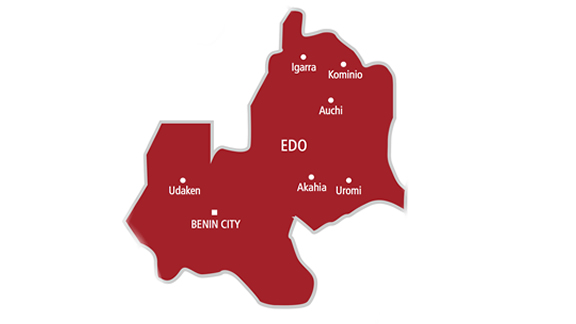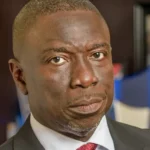Gladiators gearing up for the September 21 governorship election in Edo State are leveraging on their plans for the education sector as strategy to woo the electorate, Daily Trust Saturday reports.
Ahead of the forthcoming September 21 governorship election in Edo State, aspirants, especially from the three major political parties—the All Progressives Congress (APC), Peoples Democratic Party (PDP) and Labour Party (LP)—have united on education as a major campaign agenda to secure their parties’ tickets.
The aspirants, who are still too numerous to list out because party primaries are yet to hold, have been moving round the state and wooing would be delegates with a view to emerging candidates of their various parties.
Daily Trust Saturday reports that they have put education as their focus and priority if eventually elected.
- Grief, shock in Kano community as abortion claims teenager’s life
- Why I want to be the next Nafisa Abdullahi of Kannywood – Zubaida
Education has become a burning issue in the state. It became tensed, especially when two viral videos of primary schools that need government’s attention surfaced in the social media.
In one of the videos, pupils of Osaretin Primary School, Uzzala in Uhunmwonde Local Government Area, which classroom collapsed during a recent rainfall, knelt down pleading with Governor Godwin Obaseki to repair the school.
The second video showed pupils of a primary school at Ewatto, Esan South East Local Government Area of the state sitting on the floor receiving lessons.
A resident who only gave his name as Igbinosa said most schools in the state needed refurbishment and new buildings.
Many dilapidated schools abound in the state, especially in the rural areas. During the last common entrance examination, there were schools in the suburb of Benin City as captured by a Benin-based broadcast house, where pupils sat on the floor writing examination.
“Most of the schools are bedeviled with inadequate teachers, leaking roofs, inadequate classrooms, desks, among other things, and all these need to be fixed by the coming government,” the resident said.
He said the red roof revolution in the education sector ended with the administration of the former governor of the state, now a Senator Adams Oshiomhole.
Daily Trust Saturday learnt that because of the dearth of teachers in the schools, communities across the states now contribute money to employ teachers for their secondary schools.
The chairman, Edo State chapter of the Nigeria Union of Teachers (NUT), Bernard Gbenga Ajobiwe, during last year’s Teachers’ Day celebration, said there was acute teacher shortage in both primary and secondary schools.
“There is acute teachers’ shortage in schools across the state. Due to the shortage, one or two teachers are handling the entire classes in schools.
“In view of the acute shortage of teachers following retirements, death and resignation, among other causes, in our primary and secondary schools, we appeal to you to recruit quality teachers to fill such vacancies across the state,” he said at the forum.
He said the development was worse in rural areas, where one to two teachers are handling entire classes in schools.
He said, “Teachers in such schools may be compelled to engage multi-grade teaching in primary school setting or teaching outside their areas of strength in secondary schools.
“We are appealing to you to intervene. Our schools are empty and pupils are not learning. In a situation where two or three teachers are teaching in the entire school, how do you expect effective teaching and learning to take place?”
This is, however, considered to be a direct opposite to the image of the education system the current governor has been painting. Governor Godwin Obaseki had said in different fora that his administration had raised the standard of education in the state with the introduction of the Edo State Basic Education Sector Transformation (EdoBEST), which has now been upgraded to EdoBEST 2.0.
The governor said his administration came up with EdoBEST in the education sector due to its failing standard, high level of absenteeism by teachers, as well as poor learning. He added that infrastructure was in a horrible state.
He said although the last administration did some work to stop the high level of vandalism and poor maintenance of schools in the state, quite a number of things were still needed to be fixed.
He said his administration had renovated over 400 primary schools, provided furniture and employed over 4,000 teachers to boost EdoBEST, which he started in 2018.
He said that with his reforms, teachers’ absenteeism had reduced significantly as they were able to monitor them with the aid of the technology he introduced.
He also said the standard of learning had improved, especially in foundational literacy and numeracy.
“It is because of the rapid success we made in enabling children to know how to read and write that in 2020, Edo State became the first sub-national government to be named out of accelerator countries,” he said.
In the 2024 budget, Governor Obaseki allocated N32billion to the education sector and promised to build more schools and reposition the sector before the end of his administration.
But aspirants to the state’s Government House insist that the reality on ground is at variance with what the governor wants the people to believe.
A federal lawmaker representing Etsako federal constituency, Dekeri Sunday Anamero, in his declaration of interest to contest the forthcoming 2024 governorship in the state, said education would be the cornerstone of his administration if eventually elected.
Anamero, who declared on the platform of the APC, pledged free education up to secondary level, as well as bursary for tertiary institution students if elected governor.
“If nominated and elected, our government will, on the first day in office, introduce free and compulsory education up to secondary level, while students in tertiary institutions will enjoy bursary support,” he said.
The lawmaker also said he would embark on massive construction of classrooms and provision of sitting materials.
The state deputy governor, Philip Shaibu of the PDP, in his declaration, also said education was one of the five pillars his administration would give priority if elected.
“We will revive the moribund scholarship board in the interest of indigent students, increase subvention to all state’s institutions of higher education and give full autonomy to state-owned universities, polytechnics and colleges of education in the appointment of heads. We will restructure the State Universal Basic Education Board (SUBEB) to meet our desire for basic education.
“We will invest in primary, post primary and tertiary education by building infrastructure, improve school curriculum and employ teachers,” he said.
Also speaking, the immediate past president of the Nigerian Bar Association (NBA), Olumide Akpata, who declared on the platform of the Labour Party (LP), said he would invest more in education to bring back its lost glory in the state.
He described education as the bedrock of any society; hence he intends to invest heavily in terms of infrastructure, training and retraining of teachers.
On his part, Sergius Ogun, a former federal lawmaker and also of the Labour Party, said he would address the challenges in education.
Ogun said he built and renovated schools in his private capacity through his foundation and as a representative of the people, but lamented that, “We still have out-of-school children, terrible primary and secondary schools in communities, and schools without teachers. I will address these challenges.”
Another frontline aspirant on the platform of the governor’s party, PDP, Aslem Ojezua, said he was concerned about education, especially at the foundation level.
“We have a lot of schools but we don’t have teachers, making it look as if the state is not capable to pay for the number of teachers required.
“We have to look at how we get teachers at a less cost. Education is important. With education there is nothing we can’t do, and that is one area I am passionate about,” he said.
He said he would look at revisiting the issue of teacher training colleges so that more teachers would be trained.
Another aspirant, Kassim Afegbua, also of the APC, said education would be one of his priorities if elected.
“I will continue the red roof revolution of the government before this administration because of the infrastructural decay and rot in our education sector. It seems this government has since abandoned that sector,” he said.
Afegbua said what was still visible in state-owned schools were the red roof primary and secondary schools in villages and towns built by Oshiomhole between 2008 and 2016. “We are now in the era of so much propaganda.”
Also, the immediate past permanent secretary in the Federal Ministry of Agriculture and Food Sustainability, Dr Ernest Afolabi Umakhihe, while declaring his intention on the platform of the APC, lamented that the giant stride recorded in the education had been reversed.
“Edo has taken a back seat in terms of public education. If elected governor, I will reverse the trend by embarking on reforms, such as educational infrastructure revamp, improve school curriculum to meet current learning needs, training and retraining of teachers, as well as resuscitating vocational technical education,” he said.
However, Asue Ighogalo of the PDP, who many have been suggesting might be the preferred candidate of the incumbent governor, promised to build on the successes recorded in the education sector by the Governor Obaseki administration. He said he would invest in the education sector.

 Join Daily Trust WhatsApp Community For Quick Access To News and Happenings Around You.
Join Daily Trust WhatsApp Community For Quick Access To News and Happenings Around You.


